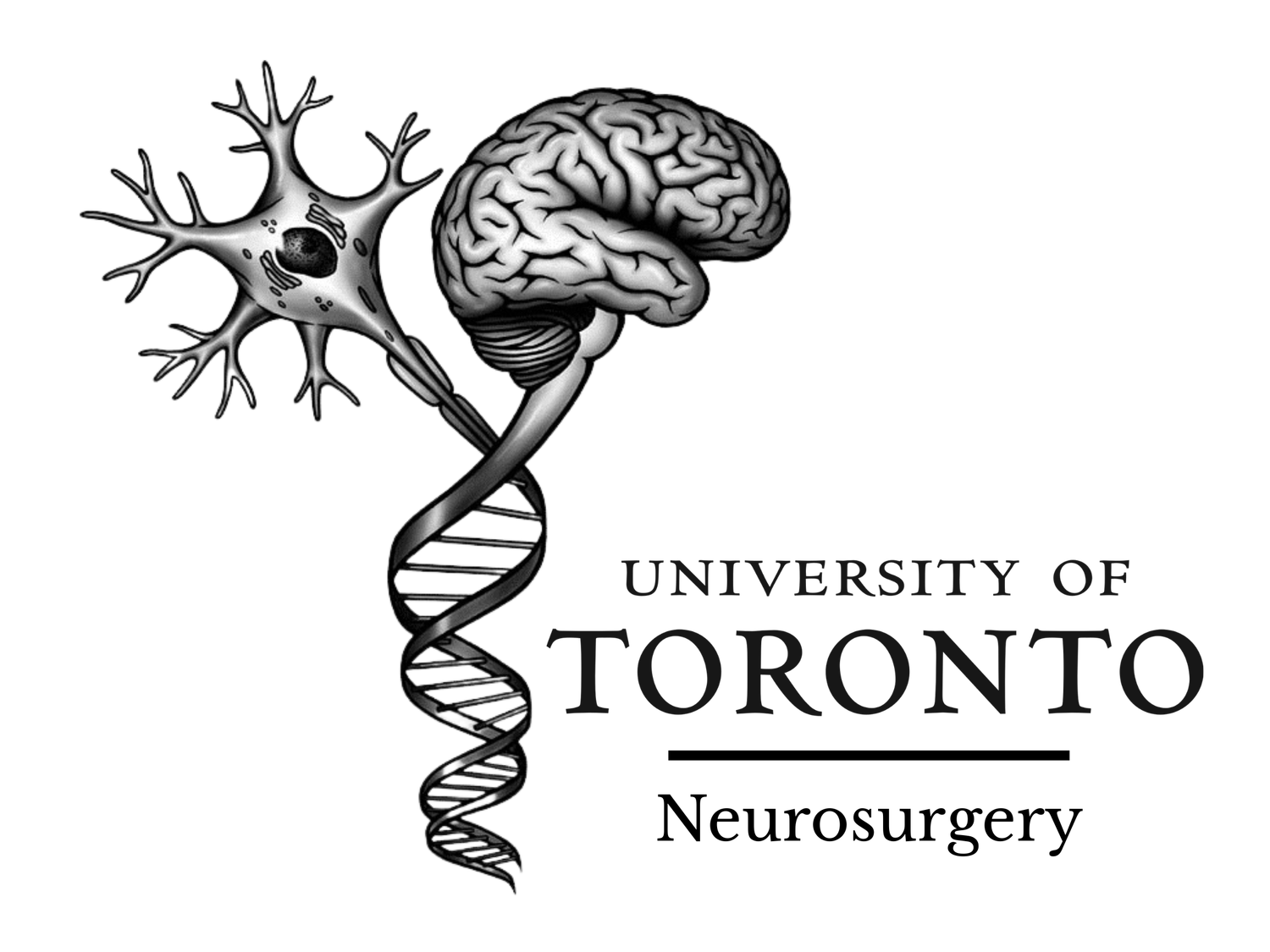-
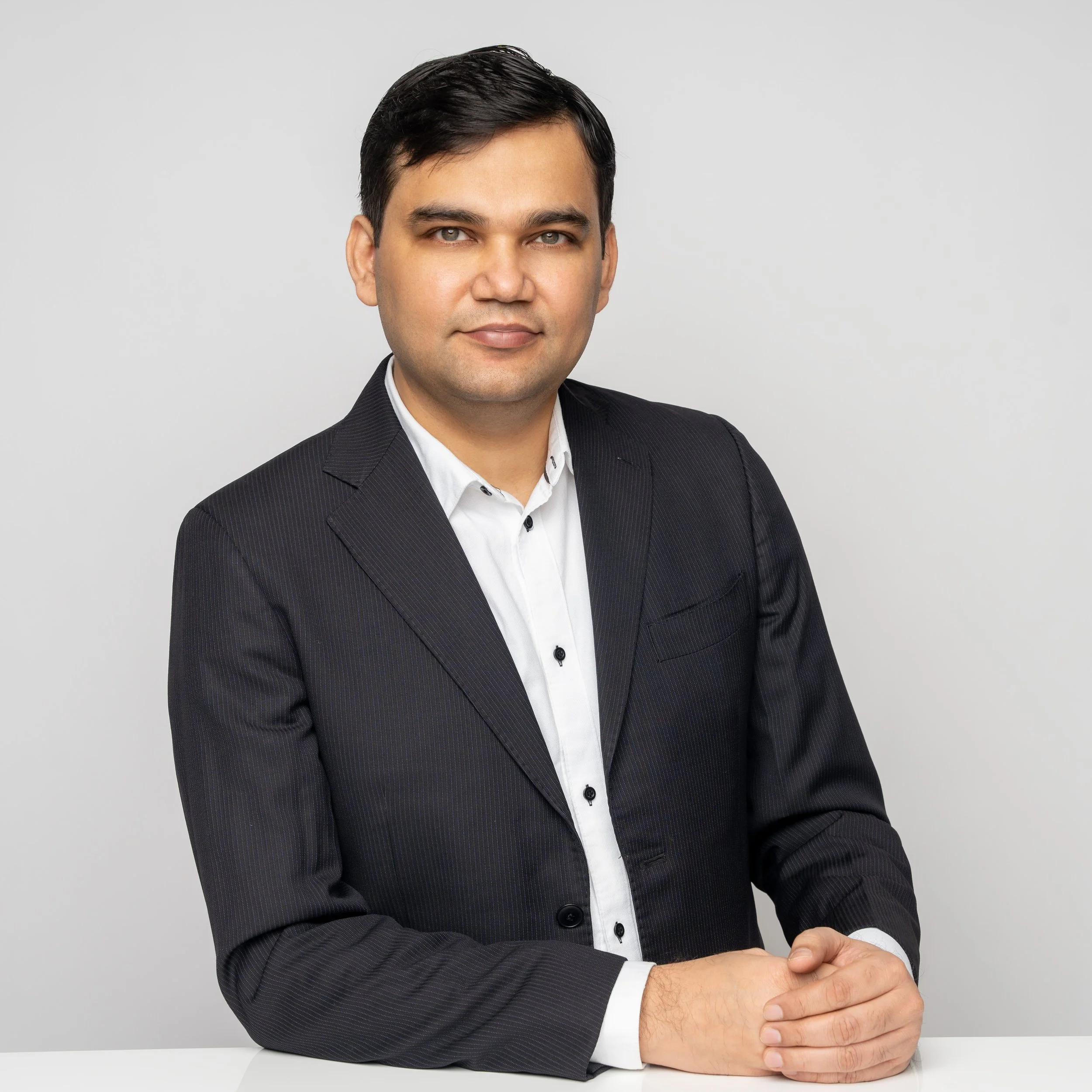
Dr. Ashish Kumar
UNIVERSITY OF TORONTO
Dr. Ashish Kumar is an endovascular neurosurgeon at Sunnybrook Health Sciences Centre. Dr. Kumar's field of expertise is in cerebrovascular and endovascular surgery, with open cerebrovascular training at Fujita Health University, Nagoya, Japan, and fellowships at University of Toronto in neurosurgery and endovascular neurosurgery at Sunnybrook and St. Michael's Hospital respectively. He joined the Division of Neurosurgery as a surgeon-teacher and has a clinical practice centred in open and endovascular care of patients with cerebrovascular diseases.
Dr. Kumar completed a Master of Science (MSc) in Education, further supporting his commitment to academic medicine. As a teacher, his main interest is to increase exposure and foster the interest of neurosurgical residents in endovascular neurosurgery through the development of a core curriculum in the specialty, simulation protocols for dual training and optimal cerebrovascular exposure during neurosurgical residency.
-
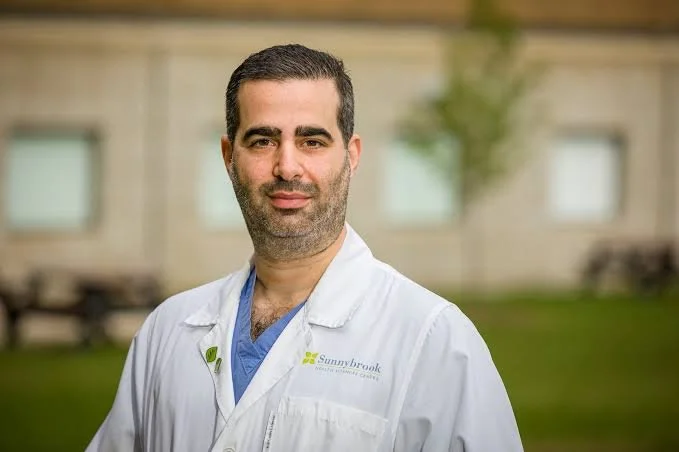
Dr. Nir Lipsman
UNIVERSITY OF TORONTO
Dr. Nir Lipsman is a neurosurgeon and scientist at Sunnybrook Health Sciences Centre and an Assistant Professor of Surgery at the University of Toronto. He completed his undergraduate degree at the University of Toronto followed by a medical degree at Queen’s University, and a neurosurgical residency at the University of Toronto. During his residency, Dr. Lipsman completed his PhD investigating novel neuromodulation strategies in patients with treatment-resistant psychiatric and neurologic conditions. He is currently the Director of Sunnybrook’s Harquail Center for Neuromodulation, and the Clinical Director of Sunnybrook’s Focused Ultrasound Centre of Excellence.
Dr. Lipsman has helped develop several clinical trials of MR-guided focused ultrasound (FUS) in novel indications, including among the world’s first experience of FUS in essential tremor, obsessive-compulsive disorder, major depression and chronic pain, as well as the first randomized control trial of FUS in tremor. He has led the world’s first application of FUS-mediated blood brain barrier (BBB) opening in Alzheimer’s Disease, and helped develop the first applications in primary and secondary brain tumors and ALS. He has published over 80 peer-reviewed papers and book chapters, including in The Lancet, Lancet Neurology, Lancet Psychiatry, New England Journal of Medicine, and Neuron.
-

Dr. Cian O'Kelly
UNIVERSITY OF ALBERTA
Dr. Cian O’Kelly is an academic neurosurgeon and Associate Professor of Surgery at the University of Alberta. He attended medical school at the University of Alberta, graduating in 2001. This was followed by neurosurgical residency training at the University of Toronto. While in Toronto, Dr. O’Kelly also completed a Masters in Clinical Epidemiology with the Institute of Health Policy Management and Evaluation and further fellowship training in cerebrovascular and endovascular neurosurgery. Dr. O’Kelly’s current practice focuses on cerebrovascular and skull base neurosurgery, combined with endovascular neurointerventional surgery.
His research interests include the epidemiology of subarachnoid hemorrhage, aneurysm treatment, and AVM treatment. His interest and involvement in medical education has evolved through his tenure as program director at the University of Alberta and as specialty lead for Competency by Design at the Royal College Specialty committee in neurosurgery. Dr. O’Kelly is currently the Neurosurgery Site Lead at the University of Alberta hospital, the Competency Committee Chair for the neurosurgery residency program, examiner and exam committee member (cerebrovascular lead) at the Royal College, and the National Director of the Canadian Neurosurgery Rookie camp.
-

Dr. Tejas Sankar
UNIVERSITY OF ALBERTA
A native of Montreal, Dr. Tejas Sankar obtained his medical degree from McGill University in 2003. He then moved west and completed his residency in Neurosurgery at the University of Alberta, becoming a Fellow of the Royal College of Physicians and Surgeons of Canada in 2010. During his residency training, Dr. Sankar completed a 2-year research fellowship at the Barrow Neurological Institute in Phoenix, Arizona, developing expertise in the application of advanced imaging techniques to study the growth and progression of brain tumors. On completing his residency, he undertook a clinical fellowship in Stereotactic and Functional Neurosurgery and doctoral studies in neuroimaging at the University of Toronto, returning to Edmonton in July 2012 to begin his neurosurgical practice.
Dr. Sankar is currently an Associate Professor in the Department of Surgery at the University of Alberta. His principal clinical interest is the neurosurgical management of patients with Parkinson’s Disease and other movement disorders using Deep Brain Stimulation (DBS), and he is the surgical lead for the DBS program. He also has strong clinical interests in neurooncology, radiosurgery, and neuromodulation for pain disorders.
Dr. Sankar currently serves as Divisional Research Director in Neurosurgery and is the Principal Investigator for the Functional Neurosurgery Research Laboratory at the University of Alberta. The lab currently focuses on the use of multimodal imaging and neurophysiological techniques in order to study the impact of brain stimulation on plasticity in the nervous system, and to develop biomarkers of treatment response across a wide range of neurosurgical illnesses, with specific emphasis on Parkinson's Disease and Trigeminal Neuralgia. Dr. Sankar has published 51 peer-reviewed journal articles, 9 invited commentaries, and 4 book chapters, and has given over 70 invited presentations. In addition, he has received several research awards, including the 2009 Journal of Neuro-Oncology award from the American Association of Neurological Surgeons. Dr. Sankar is currently an Associate Editor of the Canadian Journal of Neurological Sciences (CJNS), and serves as Vice President of the Canadian Neurological Sciences Federation (CNSF).
-

Dr. David Clarke
DALHOUSIE UNIVERSITY
Dr. David Clarke is Professor and Head, Division of Neurosurgery, Dalhousie University and Chief of Neurosurgery, Nova Scotia Health Authority. He received his Doctor of Medicine and PhD degrees from McGill University and his neurosurgical training at the Montreal Neurological Institute.
Dr. Clarke is a Fellow of the Royal College of Physicians and Surgeons of Canada and Member of the American College of Surgeons. He is a Member of the Royal College’s Innovation and Technology Task Force and has served as Vice-Chair of Canada’s Royal College Specialty Committee in Neurosurgery.
As Director of the Neuron Survival and Regeneration laboratory, he has continued to study neuron survival and regeneration following injury in the central nervous system. In recognition of this research, Dr. Clarke was awarded Dalhousie’s Clinical Research Scholar Award.
His clinical interests include traumatic brain injury, management of pituitary and brain tumours, and surgical treatment of epilepsy. He has special interest in the application of simulation technologies to neurosurgical education. He performed the world’s first open brain surgery in a virtual reality environment for which he was awarded the National Research Council’s Outstanding Achievement Award. Dr. Clarke is Founder and former Director of Canada’s national Rookie Camp for new neurosurgical trainees.
-

Dr. David Steven
WESTERN UNIVERSITY
Dr. Steven is currently a Professor and the Richard and Beryl Ivey Chair of the Department of Clinical Neurological Sciences.
Dr. Steven joined the Department in 2003 and has devoted his career to the surgical treatment of epilepsy. He is the surgical co-director of the epilepsy program at LHSC and has helped build it into the largest program in Canada.
Dr. Steven is very dedicated to residency and fellowship education. He served as the residency program director and continues to direct the epilepsy surgery fellowship at Western. The epilepsy surgery fellowship has become the premiere fellowship of its kind in Canada with fellows from all over the world being trained in London.
Nationally, Dr. Steven has been heavily involved with the Royal College of Physicians and Surgeons of Canada as a member of the Specialty Committee in Neurosurgery, a Royal College surveyor and examiner. He has been an examiner since 2008 and is the current Chair of the Royal College Examination Board in Neurosurgery. Internationally, Dr. Steven represents Canadian Neurosurgical Society on the Neurosurgery Advisory Board of the American College of Surgeons. He has also devoted considerable time developing epilepsy surgery in Peru and helping develop post-graduate medical training in neurosurgery and neurology in the Middle East.
-

Dr. Patrick McDonald
UNIVERSITY OF MANITOBA
Dr. Patrick McDonald obtained his medical degree from the University of Toronto in 1992. Following medical school and a surgical internship at St. Michael’s Hospital, he completed his residency in neurosurgery at the University of Toronto in 2000. During residency, Dr. McDonald spent 3 years studying the basic mechanisms of epilepsy in the Bloorview Epilepsy Research Laboratory at the Toronto Western Hospital Research Institute. He completed a pediatric neurosurgery fellowship at the Hospital for Sick Children in 2002 and obtained a Master’s degree in bioethics from U of T in 2004. Dr. McDonald joined the Department of Surgery at the University of Manitoba in 2002, to establish a program in pediatric neurosurgery at the Winnipeg Children's Hospital, where he worked until 2015. During this time, he served as Program Director in Neurosurgery (2004-2015) and a Research Associate in the Centre for Professional and Applied Ethics. He also served as Director of Research (Neurosurgery) at the University of Manitoba (2009-2015) and Scientist at the Children’s Hospital Research Institute of Manitoba (2009-2015). In 2016, Dr. McDonald moved to Vancouver to assume the position of Division Head of Pediatric Neurosurgery at the B.C. Children’s Hospital, and Alcan Chair in Neurosciences at U.B.C. In 2021, he returned to Winnipeg to assume his current role of Section Head for Neurosurgery, within the Department of Surgery at the University of Manitoba.
Dr. McDonald's research reflects a broad range of clinical and basic science interests, from ethics and neurosurgical education to neurooncology, hydrocephalus, epilepsy, trauma and injury prevention, and Gamma Knife treatment of a range of conditions. He collaborates with colleagues at SickKids Hospital in Toronto and other centres. Dr. McDonald has been involved with the ThinkFirst Foundation of Canada, and has provided neurosurgical care in Kenya. He has an interest in the care of Canada’s indigenous peoples and those living in remote northern communities. He serves on the editorial boards of several well recognized journals, and has been involved in the RCPSC examinations in Neurosurgery and the Principles of Surgery. He is active in the leadership of several professional organizations.
-

Dr. Carlo Santaguida
MCGILL UNIVERSITY
Dr. Carlo Santaguida is a spine neurosurgeon with a broad skill set ranging from minimally invasive surgery to complex deformity corrections. He emphasizes quality assurance and utilizes data collection to evaluate surgical and non-surgical management of patients to ensure patients maximize their potential to the best outcome possible. He is involved in the undergraduate Dean’s office and prioritizes all forms of education. He was integral in merging the McGill orthopedic and neurosurgery spine programs, which should greatly improve patient care and medical education. To address long wait times, Dr. Santaguida has developed a physiotherapist-led surgical triage process to reduce both wait times and MRI utilization while improving patient outcomes. He hopes that this program can serve as a model for all musculoskeletal-related pathology.
-

Dr. Chris Pasarikovski
QUEEN’S UNIVERSITY
Dr. Chris Pasarikovski is an Endovascular Neurosurgeon. Dr. Pasarikovski completed his medical degree at the Schulich School of Medicine & Dentistry at Western University. Following medical school, he completed his neurosurgery residency training at the University of Toronto, where he concurrently completed his PhD in the Surgeon-Scientist Training Program in the Institute of Medical Science at the University of Toronto. He then completed a fellowship in Neuroendovascular Surgery at the University of Utah in Salt Lake City. Dr. Pasarikovski’s educational and research interests are in the development of new endovascular techniques and devices for the wide range of cerebrovascular diseases.
-

Dr. Benjamin Davidson
SUNNYBROOK HEALTH SCIENCES CENTRE
Dr. Benjamin Davidson leads clinical trials in focused ultrasound lesioning, focused ultrasound neuromodulation, and deep brain stimulation in the treatment of a range of neuropsychiatric conditions. He also leads efforts at harnessing neuroimaging and electrophysiologic recordings to predict outcomes, identify treatment biomarkers, and optimize ongoing treatments. His work aims to apply a transdiagnostic connectomic lens to cut across arbitrary divisions between disorders.
-

Dr. Farshad Nassiri
TORONTO WESTERN HOSPITAL
Dr. Nassiri is a skull base and brain tumor neurosurgeon at the University Health Network. His research program aims at improving outcomes for all brain tumours. His research program includes a translational and clinical stream. The translational stream focuses on using machine learning and artificial intelligence to understanding the genetic and molecular underpinnings of tumour formation, growth, and resistance to treatment. The clinical stream focuses on development of clinical trials based on translational findings to discover new treatment options for patients.
-
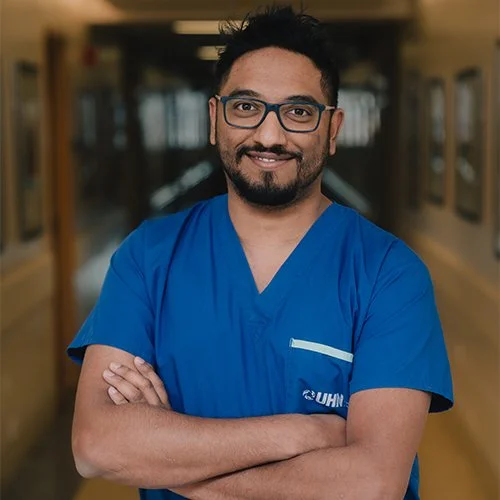
Dr. Suganth Suppiah
TORONTO WESTERN HOSPITAL
Dr. Suganth obtained his H BSc from McMaster University in 2009 (likely making him the only expert in rabid bats in the Division of Neurosurgery). He then graduated from medicine (MD) at the University of Western Ontario in 2013. He entered the neurosurgery training program at the University of Toronto, receiving his FRCSC in 2022. During his training he studied peripheral nerve sheath tumors under the direction of Gelareh Zadeh and obtained his PhD in 2022. He then did a fellowship in Calgary with Rajiv Midha to learn complex peripheral nerve surgery.
He has won many awards, including the Todd Mainprize resident teaching award 2022 and including William J. Horsey Basic Science Research award 2021, the Banting and Best Doctoral Research award 2020, the Best Basic Science Oral Presentation of the World Federation of Neurosurgical Societies (WFNS) 2018 and the Young Neurosurgeon Research grant of the WFNS 2019, and the Stryker Neuro-Oncology award of the Congress of Neurological Surgeons 2017.
He has acquired peer review funding from many granting agencies including the Canadian Institute of Health Research (CIHR), the United States Department of Defense and the Neurofibromatosis Therapeutic Acceleration Program (NTAP), Johns Hopkins Medicine.
In July, 2023 he joined the division of neurosurgery at the University Health Network and the faculty of the Department of Surgery at the University of Toronto.
-

Dr. Saira Alli
UNITY HEALTH TORONTO - ST.MICHAEL’S HOSPITAL
Dr. Alli earned her medical degree from Imperial College London and began her neurosurgical training in England before relocating to Toronto in 2015. She completed a PhD focused on ultrasound-mediated drug delivery, earning several competitive grants and publishing her research in the Journal of Controlled Release. Tn 2018, she joined the University of Toronto neurosurgery residency program and later pursued an Advanced Endoscopic and Open Cranial Base Surgery Fellowship at the Cleveland Clinic, renowned as one of the world's leading skull base programs.
Dr. Alli's clinical expertise centres on brain tumors, with a particular emphasis on minimally invasive and advanced endoscopic techniques for skull base conditions. Her research will focus on precision medicine for metastatic brain tumors and rare skull base tumors. She is dedicated to providing exceptional patient care and enhancing the skull base program at St. Michael's Hospital.
-

Dr. Francois Mathieu
UNITY HEALTH TORONTO - ST.MICHAEL’S HOSPITAL
Dr. Mathieu completed his medical training (2015) and neurosurgery residency (2021) at the University of Toronto, followed by a clinical fellowship in critical care medicine (2023). He spent one year completing a master’s in clinical neurosciences under the supervision of Professor David Menon at the University of Cambridge (2018-19), during which he developed computer vision methods to analyze the vast amount of neuroimaging data gathered as part of the CENTER-TBI study. He returned to Addenbrooke’s Hospital in 2023 to acquire additional expertise in multimodal neuromonitoring in patients with an acute brain injury, before joining the St-Michael’s Hospital neurosurgery and critical care teams. His main clinical interests include acute care neurosurgery, spine surgery, neurotrauma and neurocritical care.
-

Dr. Eisha Christian
HOSPITAL OF SICK CHILDREN
Dr. Eisha Christian is a paediatric neurosurgeon at the Hospital for Sick Children and Assistant Professor for the Department of Surgery at the University of Toronto. She is also a Project Investigator in the Child Health Evaluative Service at the SickKids Research Institute. She has a clinical focus on epilepsy surgery, hydrocephalus, brain tumors and congenital disorders including tethered cord and craniofacial surgery. Her academic interests include global neurosurgery and the establishment of paediatric specialty care centers in addition to surgical education and simulation.
-
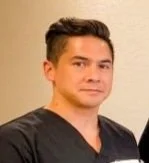
Dr. Paul Kongkham
TORONTO WESTERN HOSPITAL
Dr. Kongkham began his neurosurgical residency in Toronto. In 2004, he entered the Surgeon-Scientist program and undertook doctoral studies on the genomics and epigenetics of pediatric medulloblastoma under the supervision of Dr. James Rutka at the Hospital for Sick Children. He graduated from the Toronto program with a Ph.D. in Laboratory Medicine and Pathobiology in 2011 and became a Fellow of the Royal College of Physicians and Surgeons of Canada that year. In July 2011, Dr. Kongkham began a clinical fellowship in neurosurgical oncology at the MD Anderson Cancer Center, and in 2012 he was recruited to the Division of Neurosurgery with a staff appointment at Toronto Western Hospital. He is currently an Associate Professor in the Department of Surgery at The University of Toronto. His research is focused on the genomics and epigenetics of primary and metastatic adult brain tumors. His research laboratory is within the Arthur and Sonia Labatt Brain Tumour Research Centre at The Hospital for Sick Children.
-
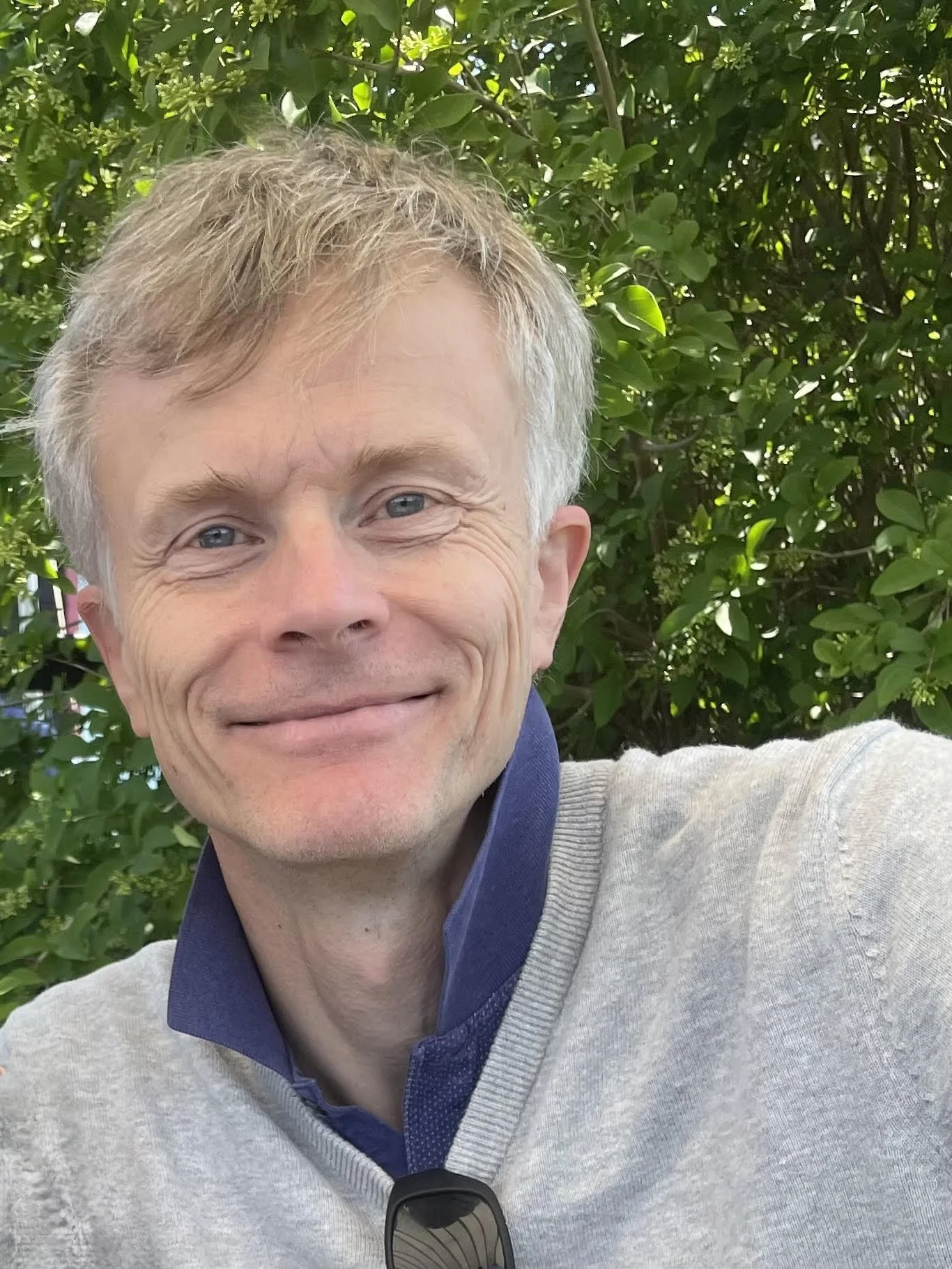
Dr. Martin Chapman
SUNNYBROOK HEALTH SCIENCES CENTRE
Dr. Martin Chapman is an Assistant Professor of Anesthesia at the University of Toronto and a full-time member of the Departments of Critical Care Medicine and Anesthesia at Sunnybrook Health Sciences Centre. His training was originally in the UK, where he qualified in Anesthesia and Critical Care Medicine in 2001 and then focused on Neurocritical Care, working in several national Neurocritical Care centres. Martin’s interests remain in developing Neurocritical Care services and in management of brain injury, particularly brain trauma and he has several ongoing research projects.
